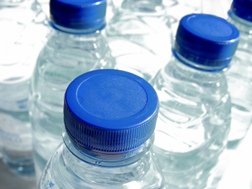 So far, biological samples taken from 28 residents of Dish have determined that levels of benzene in their blood were no higher than that of the overall US population. However, there are other sources of benzene that the greater population should be worried about.
So far, biological samples taken from 28 residents of Dish have determined that levels of benzene in their blood were no higher than that of the overall US population. However, there are other sources of benzene that the greater population should be worried about."Tapped," a documentary released in 2009, took a long hard look at water privatization—in particular, the bottled water industry and some of its primary purveyors, Nestle, Coca-Cola and Pepsi. Co-directors Stephanie Soechtig and Jason Lindsey wanted to make the point that the bottled water industry largely operates outside the control of regulatory agencies, which oversee the nation's food supply and other natural resources.
In the documentary, testing was completed on seven brands of bottled water by two independent testing labs. Their tests determined the presence of benzene as well as other cancer-causing agents in the test samples.
The level of benzene and other carcinogens was not identified in a report on the film appearing in the 3/25/10 issue of the Santa Fe New Mexican. However, it should be noted that the US Food and Drug Administration (FDA) subscribes to safe levels identified by the Environmental Protection Agency (EPA) as five parts per billion (ppb) for drinking water and other liquid consumables.
READ MORE BENZENE LEGAL NEWS
Three years ago, the FDA tested various liquid consumables that were improperly stored—including soft drinks—and found even higher levels of benzene.
Even if soft drinks and other liquid consumables containing benzoic acid as a preservative are stored properly at retail, can the same be said once the products are purchased and stored in the residential setting?
The risks associated with consuming higher levels of benzene than deemed safe were driven home for Todd Molis of Chicago, whose wife Judy was diagnosed with myelodysplastic syndrome (MDS) and died in 2004 at the age of 59. Molis said his late wife consumed a great deal of cola.
